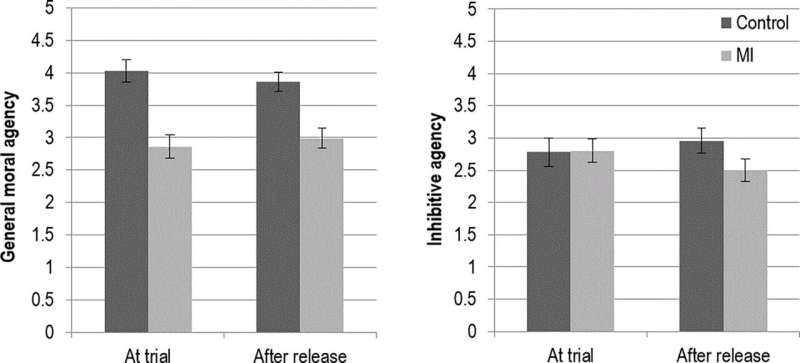Mental impairment verdict casts shadow over defendant's future

The defense of mental impairment gives a defendant reasons for their crime to be forgiven, but such a plea can have lingering negative effects on a person's social standing and even civil rights, a new study led by Flinders University finds.
A defendant's plea of reduced agency as a defense against criminal responsibility can lead to the person being seen as less morally deserving of certain rights in the community, Australian and U.S. experts say in a new article in PLOS ONE.
"We argue that although this strategy may help defendants evade blame, it may carry longer-term consequences because lay people in society often perceive a person's agency can be linked to some of the moral rights they grant them," says first author Dr. Melissa de Vel-Palumbo, from the Flinders University College of Business, Government and Law.
"After serving their sentence, people who have used this defense can be given fewer rights, as reduced agency can be perceived as increased dangerousness.
"This was observed through a range of different types of mental impairment, offenses and sentences, and have broad implications for the legal and justice system—and defendants."
For example, a person using a defense of mental impairment may be subjected to exclusionary policies and treatment, making it harder for them to reintegrate into the community.
Using online vignette scenarios, the analysis examined randomized responses from 1,600 people to assess lay perceptions of a hypothetical defense of mental impairment to reduce their level of responsibility and punishment relative to a guilty plea.
"The research also speaks to broader philosophical questions of who is granted moral standing in the community, and why," says Dr. de Vel-Palumbo.
"Typically, we see vulnerable people as needing protection—but not in this case."
However co-author Dr. Rose Ferguson, from the Institute of Health and Wellbeing at Federation University, says the study also found a possible ways to mitigate the negative effect of the mental impairment defense on moral rights.
"When participants are given information that a defendant using this defense had subsequently engaged in treatment and was able to manage their illness independently, they were perceived as higher in agency and more worthy of rights," says Dr. Ferguson.
"This could suggest that providing the community with information about successful treatment outcomes may increase acceptance of defendants who had been found not criminally responsible for their actions due to mental impairment."
The article, "Morally excused but socially excluded: Denying agency through the defense of mental impairment," has been published in PLOS ONE.
More information: Melissa de Vel-Palumbo et al, Morally excused but socially excluded: Denying agency through the defense of mental impairment, PLOS ONE (2022). DOI: 10.1371/journal.pone.0272061
Journal information: PLoS ONE
Provided by Flinders University

















